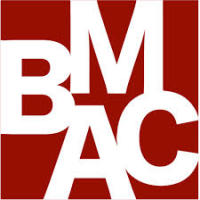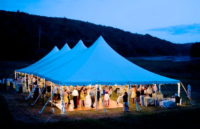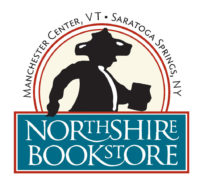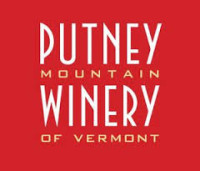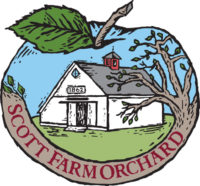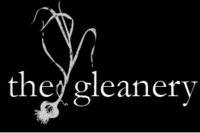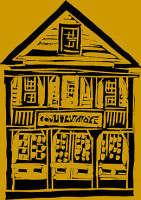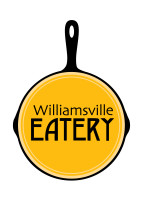The craft beer explosion in Southern Vermont

Tim Brady and David Hiler operate Whetstone Station Restaurant and Brewery in Brattleboro. Here Brady is pictured with his assistant brewer, Connor Busch.
By Troy Shaheen
It’s no secret that Vermont is a beer mecca. The Boston Globe recently ran a winter feature on the epic journeys that beer aficionados undergo to get their hands on Heady Topper from Waterbury’s The Alchemist, Prohibition Pig (also of Waterbury) was just named one of the Best New Breweries in America by Thrillist, and Greensboro’s Hill Farmstead was crowned (for the second time in three years) the best brewery in the world by RateBeer.com. A 2012 study found that craft beer provided just under $200 million in annual economic impact and more than 2,200 full time jobs.
But while the Vermont beer juggernaut chugs along, one can’t help but notice just how concentrated the recent buzz is to the northern half of the state. The nucleus of Lawson’s Fine Liquids, The Alchemist, and Hill Farmstead is so established that the route between the three breweries is widely known by beer enthusiasts and tourists as “IPA Highway,” and with over 40 Vermont breweries and counting (the most per capita of any state), just seven hang their hats south of Rutland. General logic suggests that a lower population density, and particularly fewer twenty-somethings, explain the imbalance. But while some of these Southern Vermont brewers admit it can get a little lonely down here, they also report a decorated history, a competitive advantage, and plenty of room to grow in Southern Vermont.
A Founding Father of Southern Vermont Brewing
Ray McNeil, of McNeil’s Brewery in Brattleboro, is recognized as one of Vermont’s pioneers of craft beer. He began brewing in 1980s, while studying music and running a bar that served up specialty beers, before opening his own brewery in 1989. An intern at White River Junction’s now defunct Catamount Brewery, one of the state’s first breweries, he studied the craft professionally and developed his business into a brewpub and production facility. McNeil’s beers can be found in bars and restaurants all over Vermont, and his cans and bottles are sold in stores across the state and parts of Massachusetts. “He’s probably one of the most decorated in the state,” said Vermont Brewer’s Association Executive Director Kurt Staudter, whose son works as the head brewer under the guidance of McNeil. Although McNeil’s Brewery didn’t grow at the rate of other early Vermont craft breweries like Magic Hat or Long Trail, and the brewery hasn’t recently received the press or accolades it once did, Ray McNeil continues to innovate his beer, tweak his recipes, and churn out what Staudter refers to as “some really exquisite beers.”
New (Belgian!) Kids on the Block: Hermit Thrush Brewery, Brattleboro: When Philadelphia-based friends, brewers, and beer enthusiasts Christophe Gagné and Avery Schwenk looked to open their own Belgian brewery, they chose southern Vermont based on a combination of market research and personal lifestyle preferences. They wanted to live and work in a strong local community that could support a brewery, and also a place that shared their commitment to the environment and to buying local. After mapping out the breweries in the state, they found Brattleboro had only two brewpubs and no breweries devoted exclusively to producing, rather than serving, beer — let alone the sour Belgian beers they loved. From an operations standpoint, Gagné and Schwenk appreciated the quality of Brattleboro’s wastewater treatment plant and its proximity to wild yeast and hops farms. Brattleboro’s access to I-91 and the millions of out-of-state tourists making their way north each year sealed the deal. They opened Hermit Thrush Brewery, named for Vermont’s state bird, in November of 2014, offering tastings and takeaway Belgian beer in growlers from their brewery just off the corner of Main and High Street. They also distribute kegs to local restaurants and will begin canning in the spring.
“It’s been great,” says President and Brewmaster Christophe Gagné. “We’re a very different brewery so our flavor profiles aren’t necessarily what people are used to, and we’re getting a lot of feedback from locals who are excited to have something different in town.” In addition to local patrons, Gagné says Belgian beer enthusiasts from as far away as Boston and New York City have caught wind of Hermit Thrush and have begun arriving in search of sour beers. “There really aren’t a lot of American brewers who are doing this,” he adds in reference to Belgian brews. “We appeal to a small subsection of beer drinkers and beer tourists very thoroughly.” Hermit Thrush Brewery has three full time employees and hopes to produce between 8- and 900 barrels of beer from their seven barrel brewery in 2015.
Whetstone Brewery: Taking the Brattleboro dining and drinking scene by storm in 2012 with a full menu and plenty of local beers on tap, the Whetstone Station began their own brewing operation about a year later. With a solid Mug Club program and great river views, it’s become a popular place for locals and tourists alike.
The Whetstone Station Restaurant and Brewery idea was hatched on a late summer day over a chance beer at nearby Harpoon Brewery. The partners in this endeavor, Tim and Amy Brady and David Hiler, all live and base their businesses in Brattleboro.
Tim and David were lamenting the loss of the Riverview Café in Brattleboro, a fantastically located restaurant well known for its spacious deck, spectacular views and Vermont Fresh cuisine, which had gone out of business a year earlier. They both hoped someone would buy it who could do it right. Tim thought Brewery. David was thinking Restaurant. And the rest is history. Wetstone Station Restaurant and Brewery was recently named one of the top craft breweries in Vermont
Tim and Amy are also part of creating the first ever Brattleboro Brew Fest in 2010, bringing together some of their favorite beers and brewers from around the country. The 2015 festival is slated for May 16 in its new location (close to downtown and the Whetstone Station) on Old Guilford Road.
Boston Backed Big Dog: Harpoon Brewery, Windsor : With its roots and its larger production facility and beer hall in Boston, Harpoon Brewery in Windsor is a different kind of southern Vermont brewery. Although its nerve center is indeed located out-of-state, Harpoon has been churning out craft beer from their Windsor brewery for 15 years, long before most Vermont breweries got their start. Their Vermont location currently produces about 60,000 barrels per year and employs 25 full-time and 30 part-time employees. “We certainly consider ourselves Vermont brewers,” Harpoon CEO and co-founder Dan Kenary says, “but I guess if you had to ask us we’d say we’re a New England brewery. To me, Boston and Vermont is just a great combination for New England.” He reports the two sites have slightly different feels, with Boston’s urban location and public transportation access attracting a younger crowd that can settle in for a long night without worrying about driving, and Windsor attracting a slightly older crowd of local families and visitors to the state, each arriving by car. “It’s great,” says Kenary. “We’re not a brewery that says we just want one kind of drinker. We love everyone who loves beer.”
In 2000, after 15 years growing their brewery in Boston, Harpoon was hitting its maximum production capacity and looking to find a new location that could give them room to grow their presence in northern New England. During the process of shopping around, Kenary got a tip from Magic Hat founder Alan Newman that Catamount Brewery would be going out of business and putting their Windsor brewery up for sale. Kenary and his colleagues visited Windsor, met with Catamount Brewery and the local government and state officials, and bought the brewery within two months of his conversation with Newman, expanding it over time to include a brew pub and restaurant. Like Brattleboro, Windsor’s industrial infrastructure from its days as a mill town on the Connecticut River, and it’s excellent waste water treatment facilities and proximity to I-91, made it a great brewery town, and Kenary reports that Windsor received them with open arms. “From the town to the state officials to the locals, the reception that we’ve received in Vermont has been outstanding.”
Quieter on the Western Front: Northshire Brewery, Bennington: Earl McGoff and Chris Maynes didn’t choose to open Northshire Brewery in Bennington, VT, based on market research. Local friends with a love for drinking beer, they began brewing after work as a way to relax and blow off steam. Their European style session beers were brewed in part as a way for McGoff to quench his thirst for the beers he had enjoyed in European beer halls and breweries during his time in Germany while serving in the U.S. Army. Back in Vermont, their friends came to help with the brewing and the drinking of their beer until they generated enough interest that they could formally start a business in 2010. Northshire Brewery operates in a modest space just north of downtown Bennington, offering tastings and distributing kegs and bottles to stores and restaurants throughout Vermont. Their beers include a Bohemian pilsener, an English stout, and a German hefeweizen. “We keep it pretty traditional,” says co-founder Chris Maynes. “I’m only going to make beer that I like to drink and I really like most European session beers.”
Maynes reports that, while Vermont’s craft beer industry has surged since Northshire Brewery was founded, not much has changed in Bennington. “We’re kind of lost down here,” he says. “We’re not really included in everything that’s going on in the northwestern part of the state.” Far from Vermont’s population centers, and without the benefit of I-91 traffic that the eastern corridor enjoys, Mayes says he’d like to see more recognition that areas like southwestern Vermont are indeed producing beers worth making the trip for.
The Pint Floweth Over?
Despite the relative isolation, Mayes admits there are some upsides, including fewer local competitors. “We sell all the beer we can make right now,” he says, “and have since we opened. At this point we’re not in a situation where we need a huge influx of people to stay successful, and I think you’ll find that some Vermont breweries are at their limits with the saturation that we have.”
While there is some debate regarding whether or not Vermont has already, will soon, or will ever reach its craft beer saturation point, there seems to be an interesting balance brewers must strike between being a congenial member of Vermont’s brewing community, and differentiating yourself enough that your beers can (amicably) compete and stand on their own. Basing yourself in the south of the state, with less competition, closer access to major tourist markets and out-of-state population centers, seems to be one way to set yourself apart.
Madison Brewing Company: Going on 25 years in downtown Bennington, Madison Brewing serves up innovative beers in a brewpub setting. Their new brewer, Will, has freshened up the offerings to include a burnt American brown ale, a wheat IPA, and the brewery’s first lager.
Backacre Beermakers: A small specialty operation in Weston, Backacre Beermakers brews and blends complex beers inspired by the Belgian lambic tradition. While they don’t offer tastings or retail on site, you can find their bottles in stores and restaurants in Weston, Stratton, Manchester, Chester, and Londonderry.
Meuleman’s Craft Draughts: While Meuleman’s isn’t a brewery per se, the tiny beer shop in Jamaica packs a serious punch when it comes to providing local Vermont beers to thirsty skiers, hikers, and residents. Their selection of over 300 beers is astounding and the rotating taps mean you can always fill your growler up with something new.














